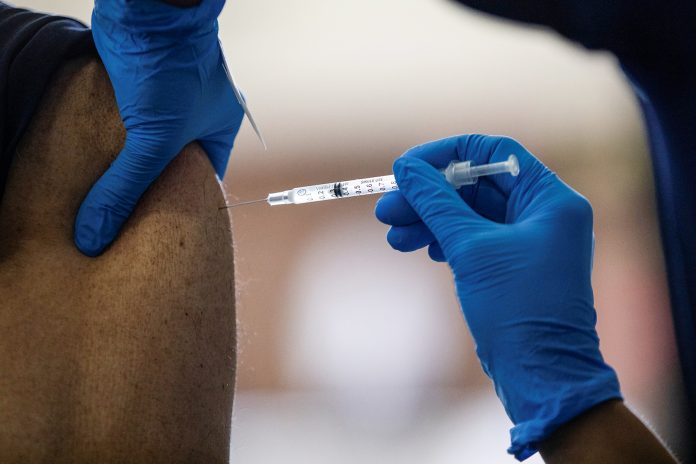
By Shermain Bique-Charles
Doctors could begin administering coronavirus booster shots as early as next week, Health Minister Sir Molwyn Joseph said yesterday.
As anticipated, the National Technical Working Group on Covid has advised the government that it can go ahead and administer the jabs to the most vulnerable groups.
“We have received the recommendation which we intend to enforce. We are now preparing how it will be done and to be sure that the right procedure is in place, not to have any confusion,” Joseph told the Observer AM show.
Earlier this month, the group was tasked by the Cabinet with reviewing guidelines for the local administration of booster shots.
A booster is an additional dose of a vaccine given after the protection provided by the original shot/shots has begun to decrease over time.
Currently, boosters are being given out worldwide for Pfizer BioNTech, Moderna and Janssen/Johnson & Johnson vaccines.
Joseph told Observer yesterday that the most vulnerable people will be a priority, but acknowledged that there could be some pushback from those already opposing the vaccine.
“It will be based on their vulnerability, the elderly, those whose immune systems are compromised … I think people will be convinced but there are some who will not take the vaccine. The anti-vaxxers continue to spew misinformation in the public,” he added.
The news comes as countries across the world put measures in place to combat the spread of the Omicron variant of the virus as the scientific community seeks to learn more about its severity, transmissibility, and level of resistance to vaccines.
In fact, the USA’s Centers for Disease Control and Prevention (CDC) on Monday strengthened its recommendation on Covid booster shots, telling all adults that they should get an additional dose amid growing concern about the newly identified variant.
The UK has also announced an expansion to its booster programme, saying it will make the jabs available to everyone aged 18 and over. Health experts say while Omicron may make vaccines less effective, the booster dose has been shown to significantly increase the body’s immune response, which will help counter any advantages this variant may have.
The World Health Organization (WHO), in a paper published this week, warned that global risk posed by Omicron is “very high”.
The variant has more than 30 mutations on its spike protein alone, some of which are associated with higher transmission and reduced antibody protection.
The WHO warned that these mutations could fuel future surges of infection with “severe consequences”.
